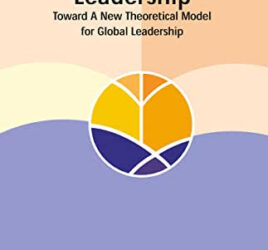True to the book’s subtitle, in Work Matters, author Paul Stevens (2011) provides the reader with a biblical perspective on labor. Stevens surveys the major sections of the Bible (Pentateuch, historical books, wisdom books, prophets, and New Testament) and draws out the theology of work presented by the numerous stories and characters. With 26 short chapters of 3-4 pages each, the depth of insight and exegesis is not lost in its brevity. Writing in his mid-seventies, the author is drawing from his wealth of experience, research, lectures and authorship. As Stevens describes his work, the “book is an approach to a comprehensive biblical theology of work,” also sometimes called “a kingdom perspective on work” (2011, pp. 7,8)
The quick synopsis of each Bible section, book and character viewed through the lens of labor is like a gem to treasure. For those who teach and preach, the hundred pages provide enough sparks to kindle a hundred sermons and lectures. As a pastor, I thoroughly enjoyed working my way through each chapter as the biblical stories and characters came alive again, watching them at work. Whether it is Adam or Eve, Jacob or Joseph, Esther or Ezekiel, the Professor (of Ecclesiastes) or Paul, Job or John (of Revelation), each of them shine a new light on the biblical understanding of work. Work is pure, since God created mankind to work the garden and steward the earth before the fall of sin. Work is purposeful, because all good work leaves its marks in heaven to be redeemed for eternity. Work done in faith, hope and love will find its way into the new heaven and earth, to be continued as worship of the God who works.
As a pastor, I also found myself challenged. Not only as I wrestled with some of the theological perspectives new or contrary to mine, but also as I thought of my church members employed in a wide variety of work that takes up the majority of their waking hours and lifetime. The stories and characters, commandments and principles, and parables and teachings found in Scripture have a lot more to say about their work than what I have ever made preached, taught or shared with them. The questions with which Stevens raises in the epilog are certainly pertinent to my context: “whether ‘good’ work can be done badly and whether not-so-good work can be done with good motives and for the benefit of others”; “how one performs good work in an unjust system”; and “how we are to work in the real world—in Cain’s world, in the city that he built” (Stevens, 2011, pp. 107-108). The answer to these questions is three closing statements which I want to quote here fully because of their profundity:
First, we work in faith—that is, in fellowship with God, like Abel and many of the leading figures, whose work life we have examined. We work for God. We work knowing that far from being a hindrance to spiritual growth, work provides a context for soul growth.
Second, we work in love, in fellowship and interdependence with co-workers, building community in every way we can. Our work is a practical way of loving our neighbors, near and far, as well as providing for our family and loved ones close to home.
Third, we work in hope, engaging the powers that frustrate God’s life-giving kingdom on earth, and being persuaded that some of our work will ast and contribute to the New Heaven and New Earth. (Stevens, 2011, p. 108, italics original)
This book has wet my appetite to sink my teeth into the design of an upcoming sermon series related to work. Following Stevens’ example, it would be much simpler to do a series of character studies of the leading figures from Genesis to Revelation. The stories bring the theology to life and help people to connect personally with the biblical characters. Whether or not I will follow this framework or another, Stevens’ short book is a great resource to draw from.
By Jacob Bloemberg
Stevens, R. P. (2011). Work matters : a biblical perspective on labor: Wm. B. Eerdmans.




